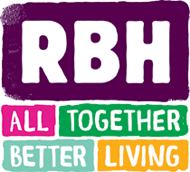In many high-rise tower blocks and other multi-occupancy buildings, the communal bin room refuse stores are often the single largest source of hazardous combustible materials in the entire building.
Due to the mixture of flammable products and the high incidence of ignition, these areas are classified as high risk in any fire risk assessment.
This situation has been recognised in the UK, and AQ2000 systems are installed in many high rise buildings where the incidence of serious bin fires has been eliminated.
A budget cost for a typical tower block in the UK is £3-4k installed. This is actually less than the cost of repairs from a single fire....
We also design and supply the systems in kit form , and work with local installation partners.
Our low pressure water misting systems operate at working pressures between 3 and 10 bar. Based on the buildings boosted mains cold water supplies, a water mist is produced in the particle size range 250-500 microns. This size range achieves a great 'wetting' effect to both quench the fire and to prevent the fire from spreading within the bins.
The AQ2000 system developed by Autoquench is an 'intelligent' fire protection system that utilises microprosessor technology to detect and spray water into the refuse bins at a very early stage in order to prevent the fire from establishing itself.
Our 'low pressure' systems operate with particle size is between 250-500 microns, at an operating pressure of between 3 and 10 bar.
Not recommended.
The AQ2000 bin room system was actually designed 20 years ago to replace fire sprinklers which had previously been used to protect bin rooms in tower blocks.
The disadvantages of fire sprinklers in bin rooms are:
1/ They require a significant amount of heat to operate, so a fire has to be well established before they trigger. They do not detect smouldering fires.
2/ As the amount of water is a continuous deluge, the bin contents can be washed out as the bins fill with water causing environmental problems.
3/ There have been a number of cases where even established fires do not trigger sprinklers, as the hot smoke and fumes from the fire tend to be drawn up through the chutes which act as chimneys.
BS5906:2005 covers waste mangement in buildings and section 4.9 cover fire risks for storage area such as bin rooms. The standard recommends automatic suppression systems for larger risks such as tower blocks (see BS5906 summary)
Although there is no specific BS for bin room fire suppression systems, we guideline using NFPA 750 Standard for water misting systems. Installation will also comply with local electrical and mechanical standards.
Due to the nature of bin refuse stores we recommend servicing/maintenance intervals of 6 months, together with a weekly test by the caretaker.
No - water mist particles are generally too light weight and easily drift in open applications.
For outside protection normal deluge type sprinklers are used. Water mist is ideal to use in confined spaces, where the hazard is contained.
When an activation occurs the system runs for a set time and resets itself automatically so that multiple cycles can occur until there is no smoke. The strobe output and communications are latched however until the panel is manually reset using the key switch.
The pipe work is dry, and water only flows when activated. In addition we recommend a simple weekly 'manual wash down', when the system is run for 1 minute, exercising the automatic valve and nozzles.
Legionella checks can be carried out if required, but the water in the pipes is regularly refreshed. To our knowledge we are unaware of any of the installed systems being checked for this currently.
Yes, boosted water is at a higher pressure than mains incoming water as the water has to be pumped to the highest part of the building.
Generally a 22mm or 28mm 'T' connection is taken from the boosted water supply.
Case Studies
Hospital disposal hold rooms fire suppression
New Build – Neath Port Talbot Hospital, Wales.
Our Partners




























